Jean-Luc Godard is one of the pioneers of the French New Wave cinema movement. He began his career as a film critic and was known for his disdain of the ‘tradition’ in French cinema at the time. As a consequence, after becoming a director, Godard went on to challenge the conventions of the time in his own movies.
In challenging the conventions of cinema, Godard went on to become one of the most influential directors of all time and he inspired countless other filmmakers, including Martin Scorcese and Quentin Tarantino.
Updated on December 27th, 2021, by Hannah Saab: Decades after Godard’s first few films redefined the French New Wave, he still continues to be an influential auteur whose movies have been studied and discussed extensively by critics and fans alike. While his most popular works have stood the test of time, it’s worth taking a look at his other films that are still emblematic of the acclaimed director’s style and aesthetic.
15 Here And Elsewhere / Ici Et Ailleurs (1976)

Godard’s collaboration with the filmmaker Anne-Marie Miéville continues to be a provocative contrasting of a safe and comfortable home against the violence of war. In Here and Elsewhere, he uses the documentary format to explain the limits of filmmaking, as well as its dangers.
The director boldly criticizes those who use movies to spread propaganda. The entire work toes the line between an art film and a classic documentary, which likely won’t appeal to everyone. It makes sense that this particular film signals Godard’s transition into stranger and more daring movies.
14 The Little Soldier / Le Petit Soldat (1963)
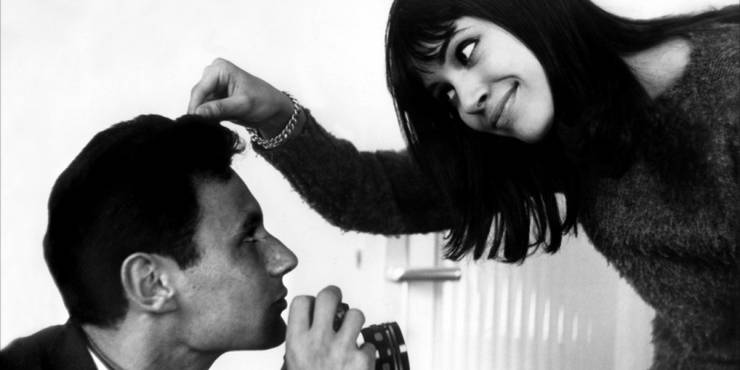
The Little Soldier tells the story of Bruno Forestier, as he struggles to evade enlistment for the Algerian war. He unexpectedly meets and falls in love with a mysterious woman during a treacherous mission, which complicates his situation even more.
Godard uses the simple love story to drive the point home about the absurdity and cruelty of war. While it isn’t as bold as his later works in its criticism of war crimes and torture, it still manages to be jarring enough to affect audiences today.
13 A Woman Is a Woman / Une Femme Est Une Femme (1961)
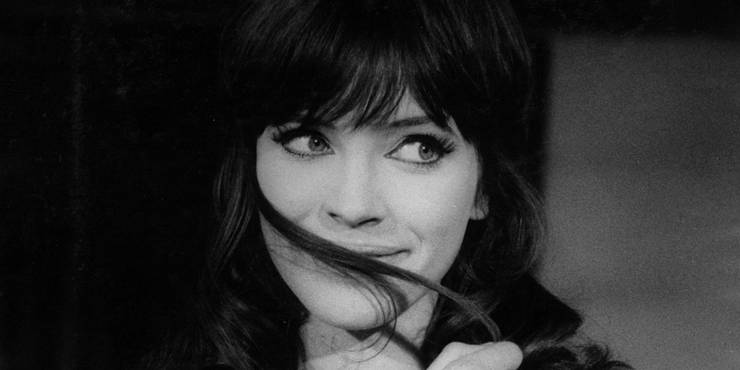
• Available on The Criterion Channel and MUBI
Godard’s A Woman is a Woman is a love letter to the musical comedy genre, which is a pleasant surprise considering the director’s portfolio. It revolves around Angéla’s unfortunate situation, where she wants to have a child with Émile but is met with negativity every time she asks.
Some of the ideologies present in the film are definitely outdated, but that does little to detract from how amusing it is to watch. From clever wordplay to comical scenes, it’s an underrated title that shows a different side of the director.
12 Notre Musique (2004)
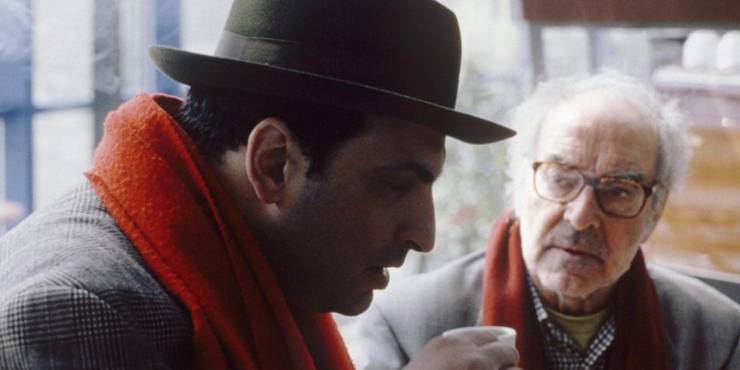
Godard doesn’t hold back in Notre Musique. The movie is an obvious commentary on the Israeli-Palestinian conflict and the role of the film industry in accurately (or inaccurately) representing it.
It’s separated into sections, with each one telling a separate narrative before they all converge in the end. Godard plays himself, with one memorable scene highlighting his insistence on the violence of the “reverse shot” in cinema. The film is one of the director’s more hard-hitting ones, with some sections almost being too painful to watch – this is, of course, a good or a bad thing depending on the viewer.
11 Goodbye To Language / Adieu Au Langage (2014)
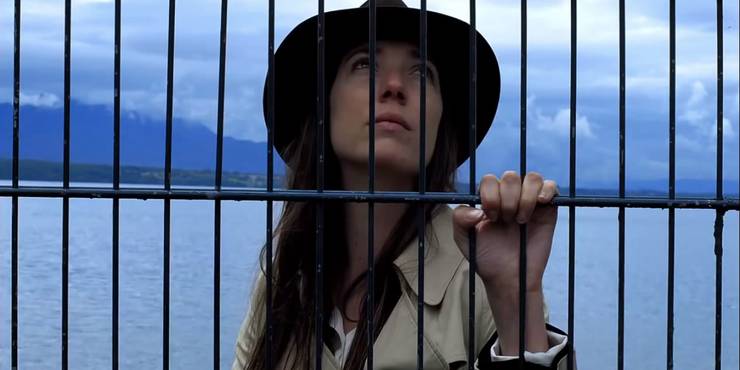
• Available on Hoopla
Goodbye to Language is one of the best movies about philosophy that underscores Godard’s ability to make audiences question their perspectives and thoughts while watching a film. As expected from the director, the entire enigmatic movie is anchored in a love story, but it goes way beyond the relationship when interpreted as a whole.
It tells the same narrative from two conflicting perspectives, with its peculiar 3D visuals emphasizing the dissonance the characters and viewers must feel. The film represents how much Godard’s style has changed throughout the years, as he has continued to refine and find his voice through his stunning works.
10 Alphaville (1965)
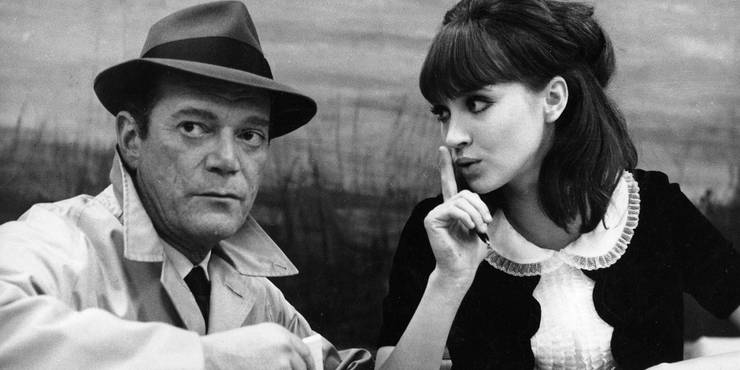
• Available on MUBI
Godard always implemented high concept philosophical themes into his work, but perhaps this is most clearly seen in his 1965 film, Alphaville. In this movie, Godard mixes science fiction themes with classic film noir in order to create a unique atmosphere in Alphaville.
The film takes place in a city named Alphaville in which individualism and expressionism have been eliminated, leaving no room for art or self-expression. The story follows a secret agent named Lemmy Caution on his mission to destroy an evil computer, which is a surprisingly simple premise for the impressive philosophical movie.
9 Contempt / Le Mépris (1963)
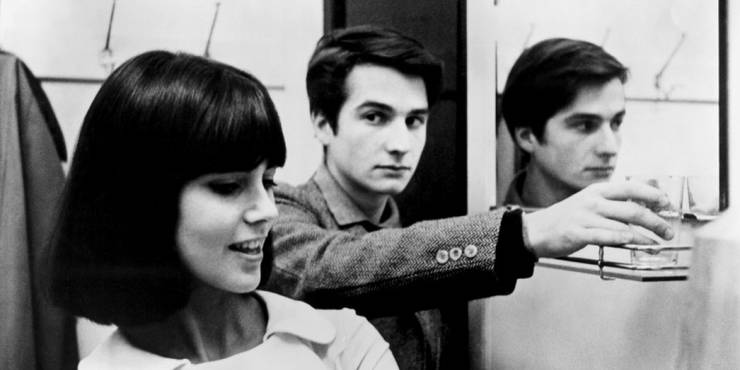
• Available on MUBI
1963’s Contempt features a stellar performance from one of France’s cultural icons, Brigitte Bardot. The iconic French model, singer, and actress portrays Camille, a woman who decides she no longer loves her husband, a screenwriter working on an adaptation of The Odyssey.
The film is a stunning exploration of human emotion that echoes the tragedies of the Ancient World, particularly with its Mediterranean setting. The film allowed the director to work with famed actors like Bardot and Jack Palance who were able to do the roles justice and bring the director’s ambitious vision to life.
8 Two Or Three Things I Know About Her / Deux Ou Trios Choses Que Je Sais D’elle (1967)
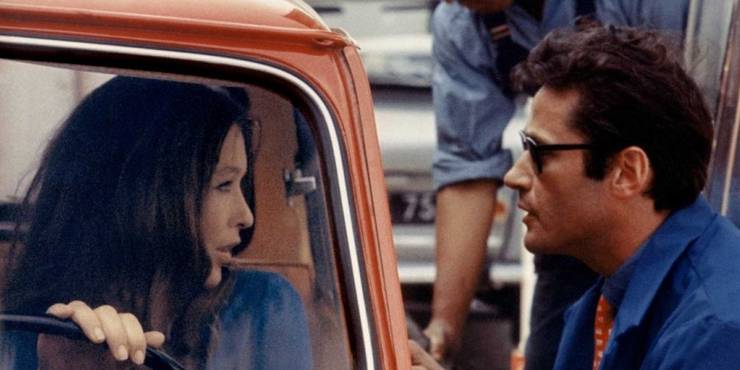
• Available on HBO Max
While Alphaville was focused on individualism, Two or Three Things I Know About Her was centered on the rampant consumerism of the 20th Century. The film follows a housewife named Juliette who turns to sex work in order to make her suburban life more enjoyable, much to other people’s disdain.
Godard truly did an incredible job of making this movie stunning, regardless of the filming location. The French director used masterful cinematography in order to make the mundane come across as beautiful, the simple as intricate and deep.
7 Weekend / Week-End (1967)
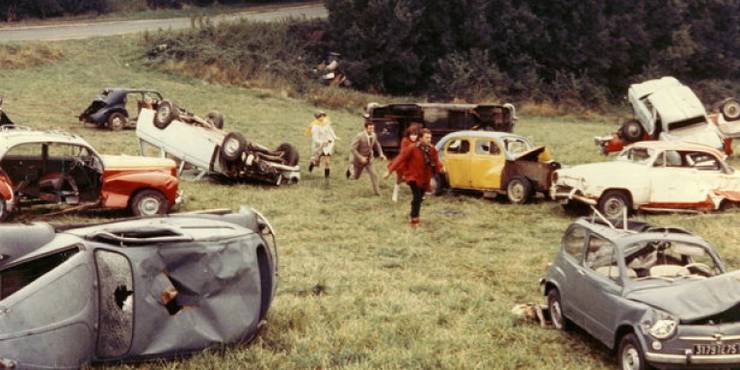
• Available on HBO Max
Week-End was a turning point in the portfolio of the influential French director. Week-End was the start of a more political focus for Godard that wasn’t as overt in his earlier works.
The film is centered around a mundane and typical holiday to the country that would end up with shocking and absurd results including murder and cannibalism as the foundations of the middle-class French society begins to collapse. It’s only the beginning of the director’s foray into more audacious social commentary that has become emblematic of his works today.
6 The Chinese / La Chinoise (1967)
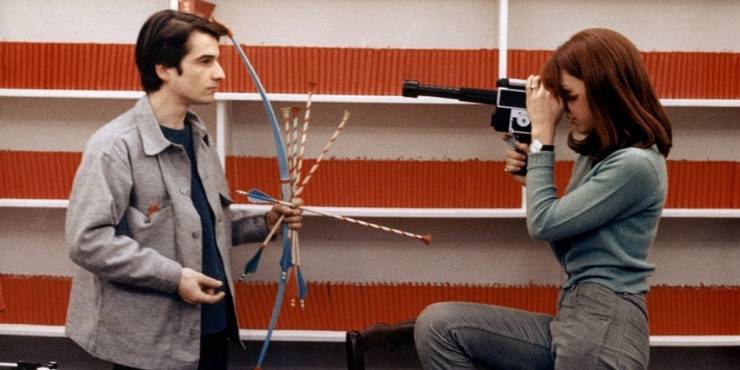
• Available on Cohen Media Channel
La Chinoise is another example of Godard’s academic and philosophical interests shining through into his cinema. Godard’s love for Maoism was well known and the release of this film, combined with his interest in Maoism, caused quite a stir.
The film follows a philosophy student and four other members of a Maoist group as they try to change the world into a kind of Communist paradise. Godard asks important questions about ideologies, fears, and politics through the movie, which was predictably still anchored in a charming love story.
5 My Life To Live / Vivre Sa Vie (1962)
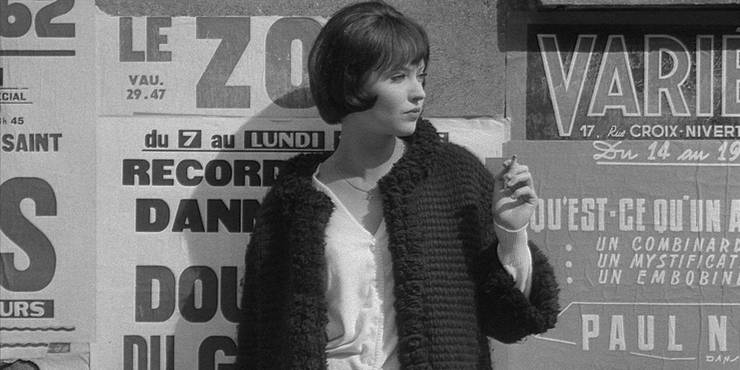
• Available on HBO Max
Much like Two or Three Things I Know About Her, My Life to Live is a critique of the consumerism that had become a large part of life in the 20th Century.
The film stars French legend, and former wife of Godard, Anna Karina as Nana, a woman who leaves her husband in order to become an actress. It tells Nana’s story across 12 episodes, showing her decision to go into prostitution and the struggles she has within the industry. It’s a brutally honest portrayal of what it’s like to be a sex worker at that time.
4 Masculin, Féminin (1966)
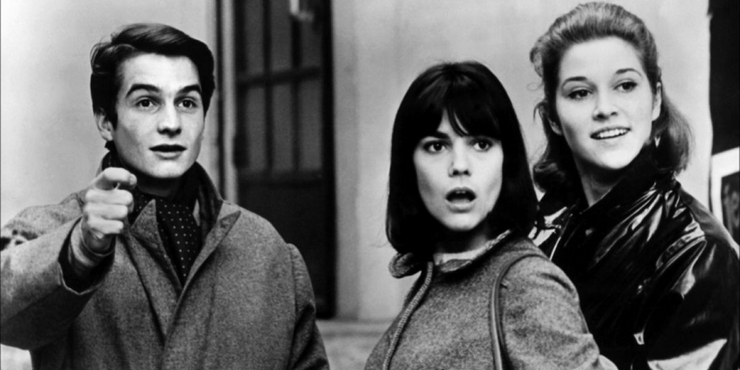
• Available on HBO Max
Masculin, Feminin is a stunning movie that explores the struggles of French youth culture in the mid-twentieth century. The film leans into popular culture very heavily throughout its runtime, referencing properties such as James Bond, artists such as Bob Dylan, and political figures such as Charles DeGaulle.
Unfortunately for Godard, despite making the film with the French youth in mind, due to Masculin, Feminin’s adult themes, it was given a rating that forbade it from being shown to those under the age of 18. It never did reach its intended audience on time, but still remains a great representation of political movies from the 60s.
3 Band Of Outsiders / Bande À Part (1964)
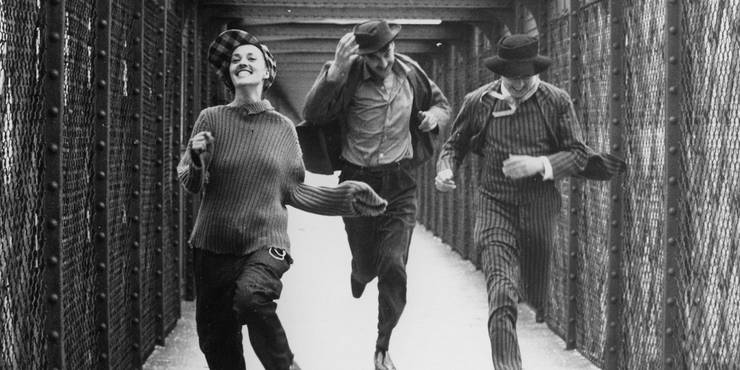
Starring Anna Karina, Band of Outsiders is a film about three people who commit a robbery in Paris. While the film is a crime thriller, it is also one of Godard’s most fun movies, featuring several memorable scenes including a dance scene that has become iconic in French cinema.
The film was very well received by critics, with many praising Godard’s ability to deliver such a fantastically charming and memorable gangster movie. The fact that it doesn’t take itself too seriously goes against what fans would typically expect from the director.
2 Pierrot Le Fou (1965)
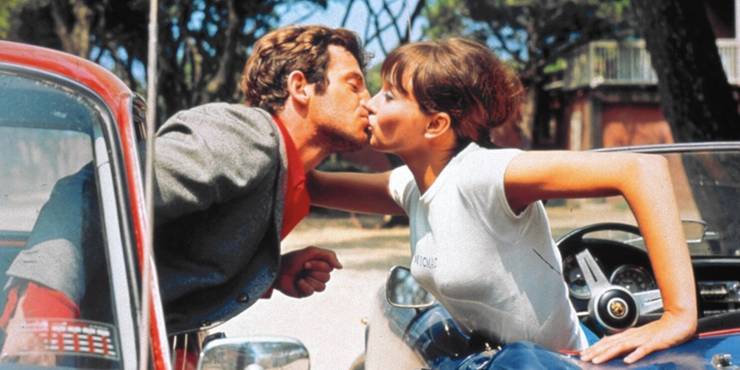
• Available on The Criterion Channel and MUBI
Based on the 1962 novel Obsession and starring both Anna Karina and Jean-Paul Belmondo, Pierrot le Fou is a pulp crime noir thriller that covers issues including the Vietnam War and the artistic struggles of the individual. The film follows Ferdinand Belmondo, as he decides to leave his boring, married life behind and escape his bourgeois existence.
The movie is one of Godard’s most visually stunning and unique films and arguably one of Belmondo’s most memorable films. Aside from the usual Godard trademarks, such as characters breaking the fourth wall, the film also leaned heavily into the pop art movement that was prevalent at the time.
1 Breathless / À Bout De Souffle (1960)
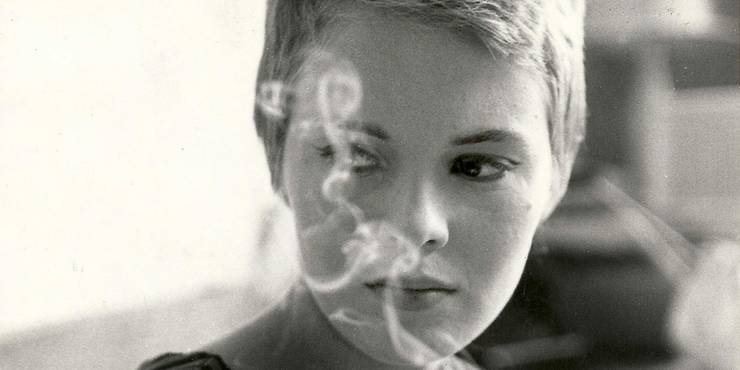
• Available on HBO Max
Breathless was both Godard’s first feature-length film and Jean-Paul Belmondo’s first big break as an actor. Breathless was heavily inspired by American crime films and followed an American woman named Patricia Franchini who becomes embroiled in the life of Michel Poiccard, a criminal.
The film was one of the first in the French New Wave movement and, as a consequence, is one of the most influential and iconic movies of all time. In addition to its influence in French cinema, Breathless was also a hit internationally due to its use of jump cuts and its unique and gripping visual style.
About The Author




